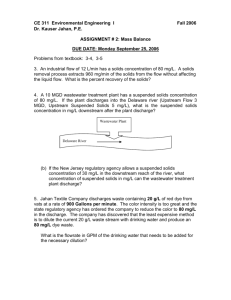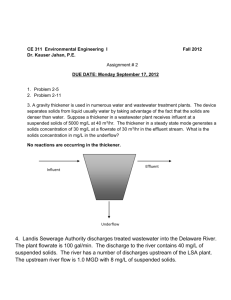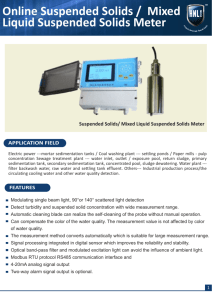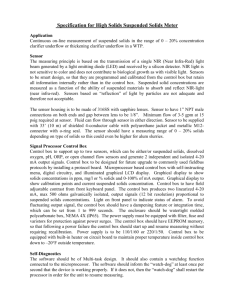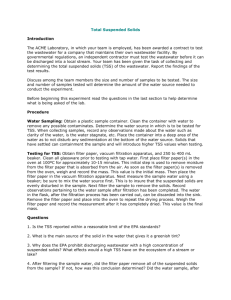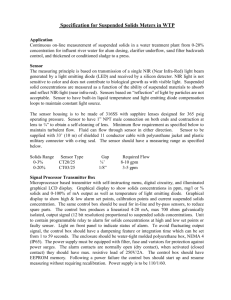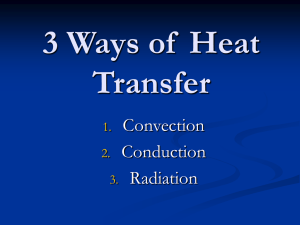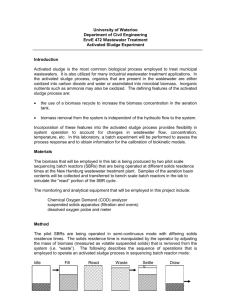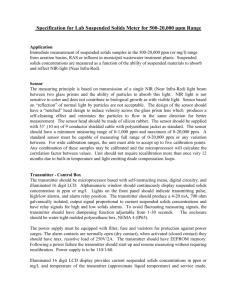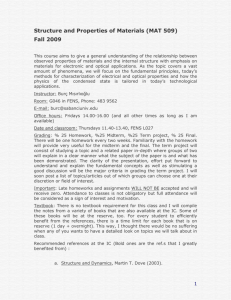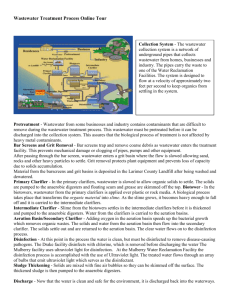Environmental Engineering Mass Balance Quiz
advertisement
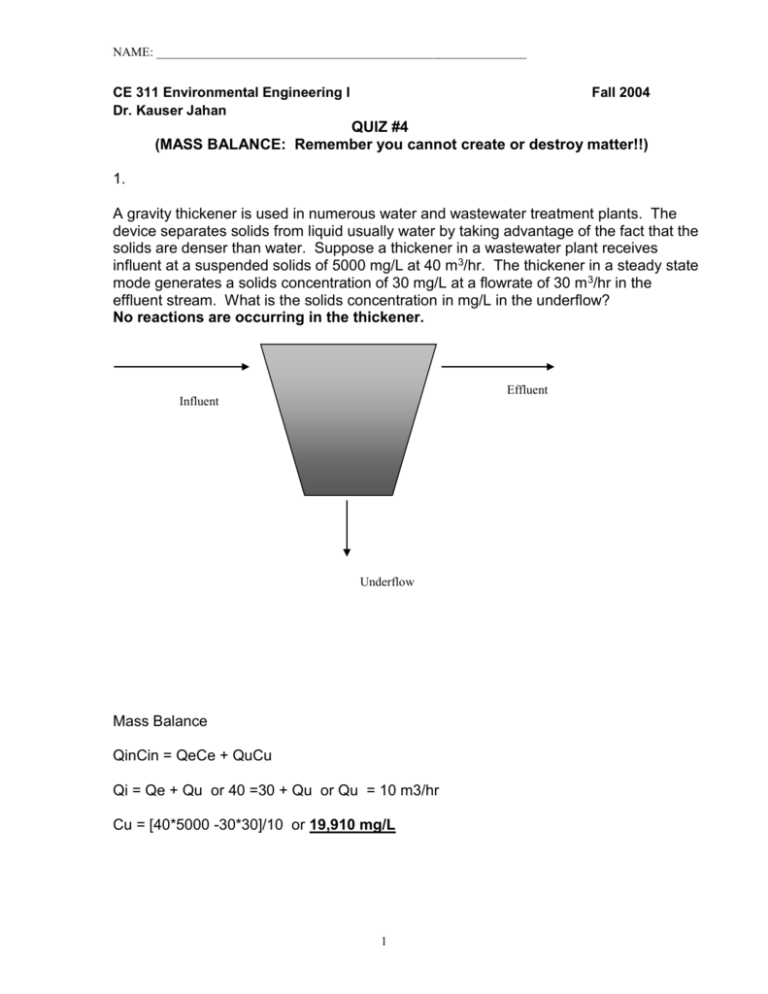
NAME: ___________________________________________________________ CE 311 Environmental Engineering I Dr. Kauser Jahan Fall 2004 QUIZ #4 (MASS BALANCE: Remember you cannot create or destroy matter!!) 1. A gravity thickener is used in numerous water and wastewater treatment plants. The device separates solids from liquid usually water by taking advantage of the fact that the solids are denser than water. Suppose a thickener in a wastewater plant receives influent at a suspended solids of 5000 mg/L at 40 m 3/hr. The thickener in a steady state mode generates a solids concentration of 30 mg/L at a flowrate of 30 m 3/hr in the effluent stream. What is the solids concentration in mg/L in the underflow? No reactions are occurring in the thickener. Effluent Influent Underflow Mass Balance QinCin = QeCe + QuCu Qi = Qe + Qu or 40 =30 + Qu or Qu = 10 m3/hr Cu = [40*5000 -30*30]/10 or 19,910 mg/L 1 NAME: ___________________________________________________________ 2. (a) A 10 MGD wastewater treatment plant has a suspended solids concentration of 80 mg/L. If the plant discharges into the Delaware river (Upstream Flow 3 MGD, Upstream Suspended Solids 5 mg/L), what is the suspended solids concentration in mg/L downstream after the plant discharge? Wastewater Plant Delaware River (b) If the New Jersey regulatory agency allows a suspended solids concentration of 30 mg/L in the downstream reach of the river, what concentration of suspended solids in mg/L can the wastewater treatment plant discharge? a) QusCus + QwCw = QdsCds Qus + Qw = Qds = 10 + 3 = 13 MGD Cds =[ 3*5 +10*80]/13 = 62.7 mg/L b) Cw = [QdsCds-QusCus]/Qw = [13*30 -3*5]/10 =37.5 mg/L 2 NAME: ___________________________________________________________ BONUS Jahan Textile Company discharges waste containing 20 g/L of red dye from vats at a rate of 900 Gallons per minute. The color intensity is too great and the state regulatory agency has ordered the company to reduce the color to 80 mg/L in the discharge. The company has discovered that the least expensive method is to dilute the current 20 g/L waste stream with drinking water and produce an 80 mg/L dye waste. a) What is the flowrate in GPM of the drinking water that needs to be added for the necessary dilution? b) What your thoughts on this type of pollution control? Are you violating any regulations? STATE ALL ASSUMPTIONS AND SHOW ALL CALCULATIONS. NO POINTS FOR CORRECT ANSWER IF WORK IS NOT SHOWN. 20g/L @ 900GPM 80mg/L @ (Qdw+900) Qdw, with dye concentration =0 Mass Balance (20*1000)mg/L*900GPM + Qdw*0 = (Qdw+900)*80mg/L Or Qdw = 224,100 GPM b) A poor solution to control pollution. Regulatory agency might not allow it. 3
